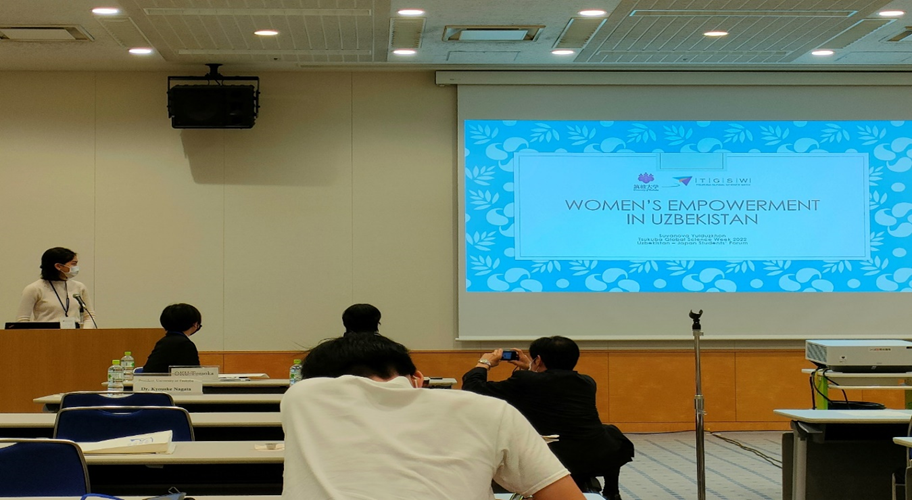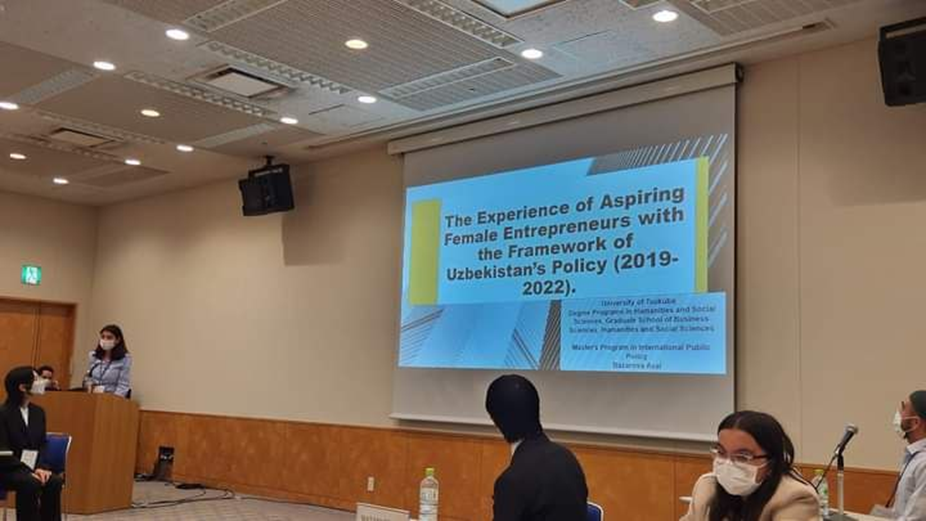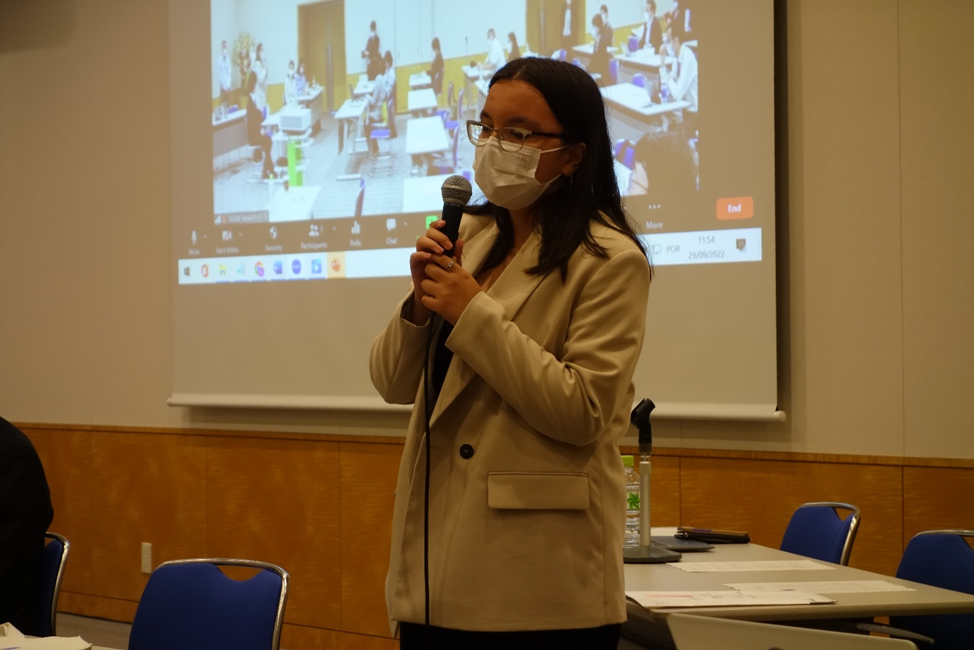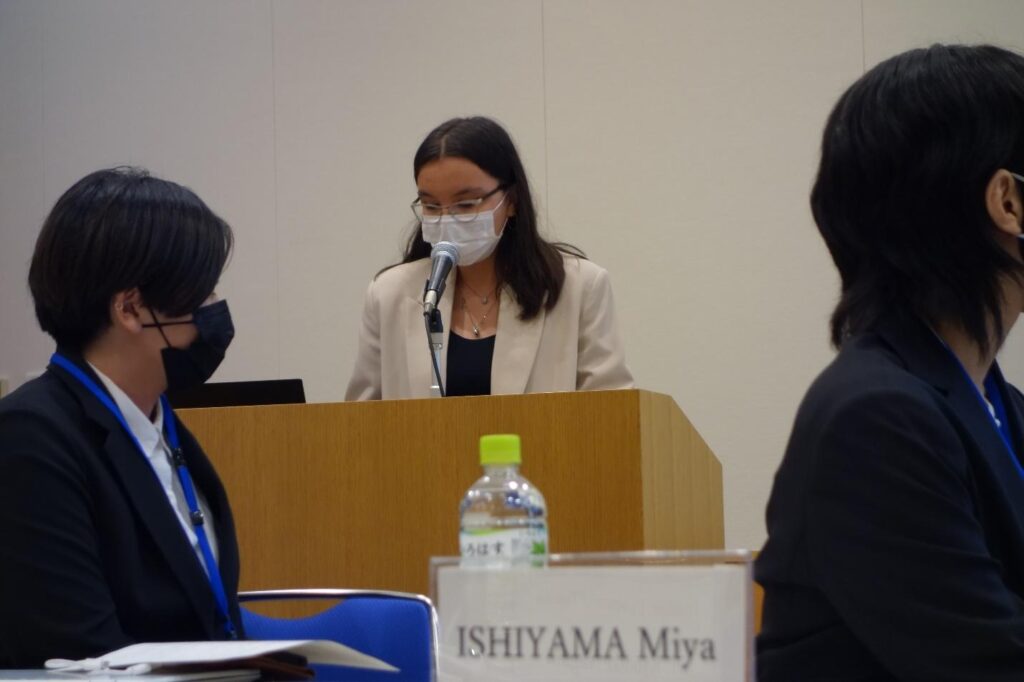On September 29, 2022, at the Japan-Uzbekistan Student Forum hosted at the University of Tsukuba, three NipCA Fellows gave presentations on their respective research topics.
The forum was open for students engaged in the study of Japan and Uzbekistan in a wide range of disciplines. Numerous presentations on Japan and Uzbekistan were featured at the forum, including ones on “Changes in Fox Alien Marriage Tales in Japan” and “Reception of German Films in Interwar Japan,” and many others. The following is an overview of the presentations made by NipCA Fellows.
(1) Suvanova Yulduzhon, NipCA SPJES Fellow Class of 2021 (Third Term Fellow), SPJES “Women’s Empowerment in Uzbekistan”
Politicians, international organizations, and academics have all actively debated the idea of empowerment in regard to gender and poverty. Although there are numerous variations in how this question is addressed, the basic idea is the same. However, there are differences in how different organizations define the term, which muddles local and global decision-making processes and policies on this topic.
The purpose of this study is to examine differences and conventionalities in the use of the term “empowerment” and to see what impact differing definitions have on policies, laws and decision-making processes .

(2) Bazarova Asal, NipCA SPJES Fellow 2021 (Third Term Fellow), “The Experience of
Aspiring Female Entrepreneurs with the Framework of Uzbekistan’s Policy (2019-2022)”
As a master’s student studying “International Public Policy,” Bazarova Asal participated in the Forum and gave a presentation titled “The Experience of Aspiring Female Entrepreneurs with the Framework of Uzbekistan’s Policy (2019-2022)”. She had the opportunity to present the results of interviews she conducted with women entrepreneurs in Uzbekistan to a large audience.

(3) Mavlonova Maftuna, NipCA SPJES Fellow 2021 (Third Term Fellow), “Female engagement in STEM in Uzbekistan”
Mavlonova Maftuna presented her research on “Female engagement in STEM in Uzbekistan”. The study concentrated on the causes of the underrepresentation of women in STEM fields and strategies to increase their engagement.
The study uses data from interviews with women working in STEM fields as a target group. According to the presenter, different remarks and inquiries made in response to the report helped to deepen her knowledge of the topic and gave her a great chance to network with other students who shared her interest in this particular topic.


The participants received a variety of questions, comments, and suggestions with new viewpoints and opinions during the Q&A session following the presentations. At this very dynamic and productive forum, the speakers’ passion for giving back to the academic communities in Uzbekistan and Japan could be clearly seen. We believe the attendees also had an excellent chance to broaden their perspectives by being part of the forum.




